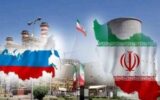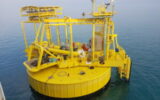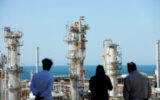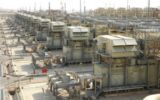
Following Ukraine's attacks on Russian oil refineries and the reduction in the country's fuel exports to Central Asia, Iran has a unique opportunity to fill Russia's void in regional markets. But can Iran seize this opportunity despite sanctions and domestic challenges?

Mohammad Shariatmadari invited the journalists to the meeting.

In the heart of the Persian Gulf, a floating structure is connected to the seabed with huge chains, which transfers Iran's oil and gas condensate to giant tankers without the need for a dock. This localized technology is the hidden pillar of Iran's oil exports.

Winter is coming, and like every year, the issue of reducing gas consumption in the domestic sector and the challenge of energy imbalance is once again highlighted. Energy expert Hossein Mirafazli warns that excessive dependence on gas for home heating is a strategic mistake that has faced the country with an energy imbalance crisis during the cold season. He emphasizes the need to establish a Ministry of Energy, promote incentive schemes, and utilize modern technologies to reduce gas consumption.

Ali Akbar Moinfar, Iran's first oil minister, was a man whose life fluctuated between earthquake science and oil politics; a figure who was both dubbed the father of Iranian earthquake engineering and whose name was immortalized in the history of the oil industry.

The more than two-decade-old contract to export 10 billion cubic meters of Iranian gas annually to Turkey expires in mid-2026, but unlike in the past, there is no sign of Ankara's willingness to extend it this time. This is an issue that experts see as not only a threat to the country's gas revenue, but also a danger to Iran's geopolitical position in the region.

The publication of a strange news item by the international media outlet "TankerTrackers" stating that Iranian tankers' trackers have been turned on after seven and a half years has inflamed the oil scene. A claim that some experts consider a sign of "shadow government" interference and an attempt to create a crisis and new pressure on the new government. But what is the story?

The CEO of South Zagros Oil and Gas Company, referring to more than three decades of production from the Nar gas field, said that with the implementation of the pressure boost project since year 2, more than 5 % of the gas has been produced and its conversion program is underway.

Despite the annual increase in China's crude oil imports in September, the country's imports declined compared to August, reaching the lowest level from the beginning of the year. At the same time, imports from Iran have also fallen to the lowest level since January.

Hassan Moradi, an energy expert, believes that the end of Iran's gas export contract to Turkey in 2026 could have economic and security consequences for the country. He emphasizes that Iran must use energy diplomacy and a smart approach to persuade Turkey to extend gas cooperation.










